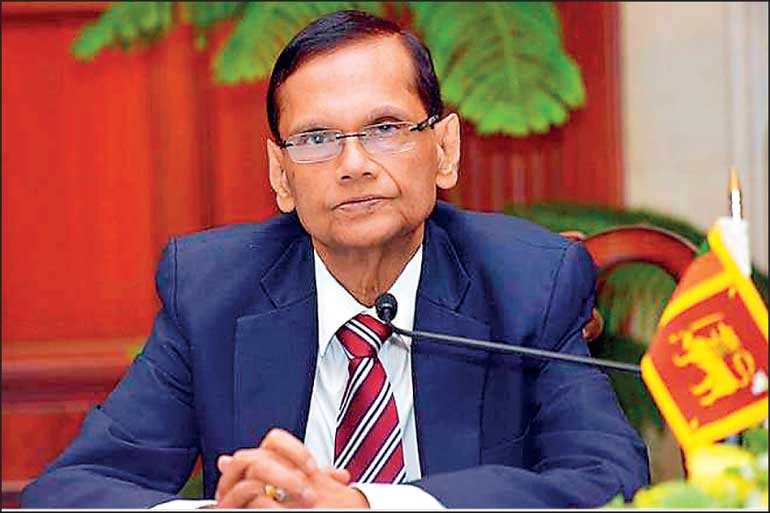Tuesday Feb 17, 2026
Tuesday Feb 17, 2026
Saturday, 12 February 2022 00:00 - - {{hitsCtrl.values.hits}}

Ministerial Subcommittee on amending the Prevention of Terrorism Act Chairman Foreign Minister Prof. G.L. Peiris
By Sri Lankan Collective for Consensus
The Prevention of Terrorism Act was introduced to the Sri Lankan legal system as a temporary law to deal with a growing armed insurrection. The PTA is being amended today in a time of peace and circumstances very different from when it was first introduced.
As pointed out by the Government, the PTA is being amended for the first time in 43 years. We recognise some positive measures in the proposed revisions. These include:
1. Provision for detainees to apply for bail to the Appeal Court after one year of being detained
2. Ensuring that the magistrate looks into the conditions of detention periodically
3. Obtaining a medical health check at the time of detention.
While welcoming these, and other improvements, the Sri Lankan Collective for Consensus (SLCC) notes that the amendments do not touch, the objectionable features such as the following:
1. The overbroad definition of terrorism
2. Detention orders given without supervision of the judiciary
3. Confessions to police continue to be admissible.
Despite the release on bail of some PTA detainees, lawyer Hejaaz Hizbullah and journalist Keerthi Ratnayake, among many others, remain in detention for long periods.
At SLCC’s meeting with the ministerial subcommittee under the chairmanship of Foreign Minister Prof. G.L. Peiris on 27 November 2021, we presented our position on the reform process. We wish to reiterate the main elements again.
a. Clarify the law: Define what terrorism is
b. Avoid extrajudicial actions: Limit all detentions and punishments to the courts of law
c. Ensure compatibility with the Constitution through vetting by the Supreme Court.
First, the term “terrorism” needs to be defined and not left open to arbitrary and subjective interpretations of political and administrative authorities and the security forces.
Second, the powers of arrest and detention should be confined to the judiciary. The extrajudicial powers vested at present with political and administrative authorities and with the security forces need to be subject to judicial review. The powers to grant bail need to be vested with the more accessible magistrate courts as per criminal procedure code.
Third, the legislation pertaining to the revised PTA needs to be vetted by the Supreme Court.
Finally, natural justice principles and rights of individuals need to be honoured countrywide at every stage and should be parallel to the criminal procedure code.
In the absence of the above the revision of a new draft would fall short of expectations by national and international standards of preventing terrorism. In this eventuality, SLCC believes the best option is for the PTA to be repealed and replaced with a new law that conforms to international standards.
SLCC observes that the powers of arbitrary arrest and detention given by the PTA to political and administrative authorities and to the security forces are frequently misused. They have impacted most severely on ethnic and religious minorities and also on political opponents of incumbent governments. The indemnity clauses that protect public officials need to be removed in cases of egregious abuse as decision makers should be responsible for their actions.
With the aim of protecting the human rights of citizens, meeting the expectations of the international community and securing the GSP Plus tariff concession, SLCC calls on the Government to further amend the PTA on the lines proposed or repeal it. This can be a part of the structural transformation in the country essential to sustainable peace and reconciliation in Sri Lanka.
The Sri Lankan Collective for Consensus is a group of individuals drawn from multiple sectors of society, religion, academia, and non-governmental organisations. They are committed to a Sri Lanka that is founded on ideals of pluralistic coexistence, human rights, and justice.